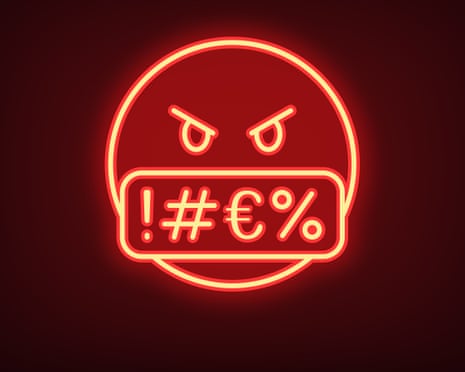World
Global Study Reveals Cultural Insights Through Taboo Language

A recent study has unveiled significant cultural differences regarding taboo language across various countries. Researchers explored how people from different linguistic backgrounds perceive and utilize swear words, revealing surprising insights into the societal norms and values that shape these expressions. The study, which examined taboo words in 13 languages across 17 countries, found wide disparities in the frequency and nature of offensive language, highlighting how cultural context influences linguistic choices.
The research indicates that while native English speakers in the UK and Spanish speakers in Spain produced an average of 16 taboo words, German speakers significantly outperformed them, listing an average of 53 words. These included unique terms like intelligenzallergiker (a person allergic to intelligence) and hodenkobold (testicle goblin), demonstrating Germany’s propensity for creating compound words.
Jon Andoni Duñabeitia, a cognitive scientist and professor at Madrid’s Nebrija University, emphasized that these findings provide valuable insights into cultural values and social boundaries. He noted that the abundance of German swear words could be attributed to the language’s ability to form new compounds. Alternatively, speakers of other languages may simply struggle to recall these terms in a neutral setting.
The study also highlighted notable trends in the frequency of specific words across cultures. For instance, the term “shit,” or its equivalents, ranked highly among English, Finnish, and Italian speakers, but did not appear among the top taboo words in French, Dutch, Spanish, or German. In contrast, derogatory terms aimed at women, such as “bitch,” were prevalent across multiple languages. Duñabeitia pointed out that this phenomenon reflects the deeply entrenched sexism present in many societies.
Sexual terms also featured prominently in the findings, suggesting a universal discomfort surrounding topics perceived as private or inappropriate. Words like “feminazi” illustrate how language evolves alongside social and political shifts. The rise of social media platforms has further contributed to the hardening of language, with taboo words increasingly used to target individuals based on race, gender, or sexuality.
When discussing the presence of blasphemy, Simone Sulpizio, a psychology professor at the University of Milano-Bicocca and lead author of the study, noted that while blasphemous language was evident across all examined languages, it was most pronounced among Italians. Respondents provided over 24 taboo words related to the church, including 17 variations of the phrase translated as “fucking God.” Sulpizio suggested that Italy’s close ties to the Vatican and the strong influence of Catholic traditions might explain this phenomenon.
The research explored how different cultures use insults and slurs, revealing that while every culture has its unique terms, the targets of these insults vary significantly by region. On average, men and extroverts tend to use taboo language more frequently, with individuals swearing approximately once every two minutes in conversation. This frequency can vary based on the context, topic, and relationships among speakers.
The multifaceted nature of taboo words makes them particularly fascinating, as they can be employed positively or negatively. According to Sulpizio, these words possess remarkable power, capable of inflicting harm or challenging authority, while also serving as outlets for stress relief and humor. Interestingly, studies have suggested that swearing can even provide physical benefits. For instance, one study found that participants who used taboo words while holding their hand in ice were able to endure the discomfort for longer.
The persistence of taboo language continues to intrigue researchers, particularly since many authority figures discourage its use. Sulpizio noted that while the most familiar words in a language are typically those most frequently used, taboo words often defy this trend. Their familiarity does not translate to frequent appearances in formal writing or public discourse.
Overall, the 2024 study challenges long-held assumptions about swearing as merely a sign of aggression or poor language skills. Researchers are now recognizing the complex role of taboo language in shaping social interactions and reflecting cultural realities. As the conversation around language evolves, understanding these nuances may shed light on broader societal issues.
-

 Health3 months ago
Health3 months agoNeurologist Warns Excessive Use of Supplements Can Harm Brain
-

 Health3 months ago
Health3 months agoFiona Phillips’ Husband Shares Heartfelt Update on Her Alzheimer’s Journey
-

 Science1 month ago
Science1 month agoBrian Cox Addresses Claims of Alien Probe in 3I/ATLAS Discovery
-

 Science1 month ago
Science1 month agoNASA Investigates Unusual Comet 3I/ATLAS; New Findings Emerge
-

 Science4 weeks ago
Science4 weeks agoScientists Examine 3I/ATLAS: Alien Artifact or Cosmic Oddity?
-

 Entertainment4 months ago
Entertainment4 months agoKerry Katona Discusses Future Baby Plans and Brian McFadden’s Wedding
-

 Science4 weeks ago
Science4 weeks agoNASA Investigates Speedy Object 3I/ATLAS, Sparking Speculation
-

 Entertainment4 months ago
Entertainment4 months agoEmmerdale Faces Tension as Dylan and April’s Lives Hang in the Balance
-

 World3 months ago
World3 months agoCole Palmer’s Cryptic Message to Kobbie Mainoo Following Loan Talks
-

 Science4 weeks ago
Science4 weeks agoNASA Scientists Explore Origins of 3I/ATLAS, a Fast-Moving Visitor
-

 Entertainment4 months ago
Entertainment4 months agoLove Island Star Toni Laite’s Mother Expresses Disappointment Over Coupling Decision
-

 Entertainment3 months ago
Entertainment3 months agoMajor Cast Changes at Coronation Street: Exits and Returns in 2025









